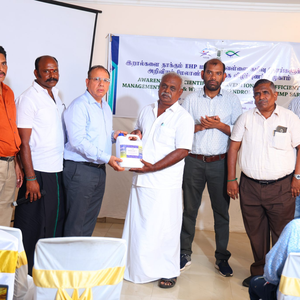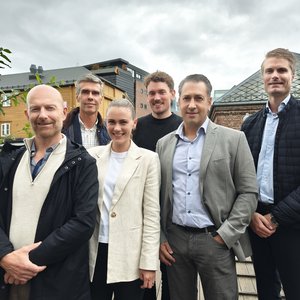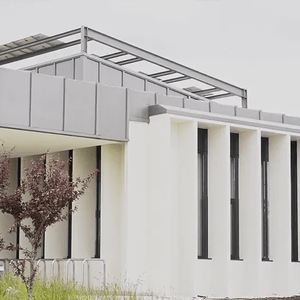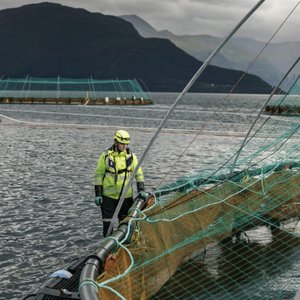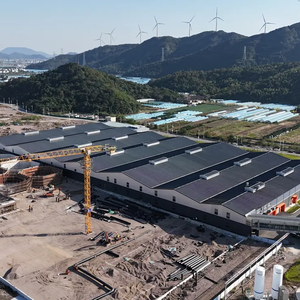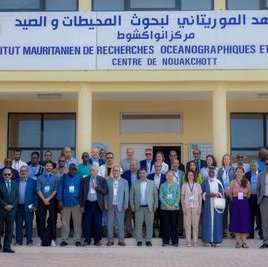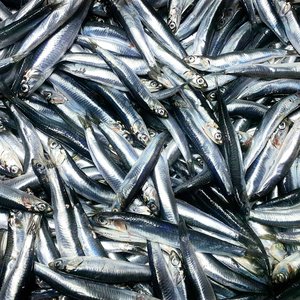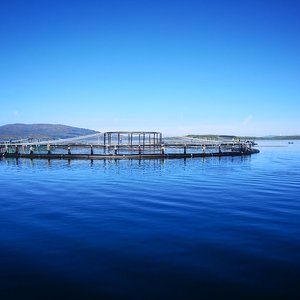Zimbabwe's aquaculture sector has been struggling with the prohibitive cost of fish feed, primarily due to the reliance on expensive, imported high-protein ingredients. Additionally, the limited number of hatcheries, often located far from farming communities, makes accessing quality fingerlings difficult and costly, impacting the growth and sustainability of the sector. Many farmers are resorting to inbred local genetics, which has been limiting the growth of the fish.
Led by the Organisation of African, Caribbean and Pacific States (OACPS) with funding from the European Union (EU) and the German Federal Ministry for Economic Cooperation and Development (BMZ), FISH4ACP (an initiative of the OACPS) is tackling these challenges head-on by promoting local feed production using alternative protein sources and establishing fingerling distribution hubs closer to farmers.
Paul Mwera, FISH4ACP project coordinator in Zimbabwe, explained: "Our goal is to empower local fish farmers with the resources and knowledge they need to thrive. By supporting local feed production and ensuring access to quality fingerlings, we can unlock the full potential of aquaculture in Zimbabwe.”
Also, FISH4ACP is collaborating with Chinhoyi University of Technology (CUT) to research and promote the use of black soldier fly in aquafeeds.
Robert Musundire of Chinhoyi University of Technology emphasized the significance of this research: "The trials in Karoi confirmed that black soldier fly feed performs comparably well with conventional feed. We believe that black soldier fly-based feed can significantly reduce the cost of fish farming by 40 percent while maintaining the nutritional value required for optimal fish growth."
CUT also exchanged knowledge with Uganda University on the production of black soldier fly as fish feed and found that the black soldier fly frass is an effective pesticide when used in banana plantations, which are common in the Mutasa district.
Furthermore, Aquadelicacy, a feed plant in Honde Valley owned by farmer Fortune Garapo, has been upgraded with FISH4ACP support to use black soldier fly in feed production. The plant received training, equipment, and black soldier fly starter colonies, while six farmers and four government extension officers were trained at CUT on black soldier fly and feed production. Aquadelicacy now provides affordable and nutritionally complete fish diets to over 300 local farmers, 44 percent of whom are women. Garapo mentioned: “Before FISH4ACP, accessing affordable fish feed was a major hurdle. Now, with the black soldier fly technology and support from the project, we can produce high-quality feed locally, boosting fish production and improving the livelihoods of our community. Likewise, one of our goals is to produce 2 tons per month of black soldier fly.”
FAO, in partnership with the Ministry of Agriculture and the Zimbabwe Fish Producers Association (ZFPA), has established a fingerling distribution hub in Honde Valley. This hub, led by women, serves as a central point for farmers to obtain quality fingerlings sourced from qualified hatcheries. The hub has seven tanks capable of holding 420,000 fingerlings.
Elizabeth Zibangwe from Nyakurimwa village in Honde Valley stated: "This hub has made a huge difference for us. We no longer have to travel long distances and risk the survival of the fingerlings. Now, we have easy access to quality fingerlings right here in our community.” The hub has the potential to move 2 million fingerlings during one season, which translates to at least 600 tons of fish valued at USD 1.8 million.
FISH4ACP is poised to create lasting change in Zimbabwe's aquaculture sector. By promoting sustainable feed production, ensuring access to quality fingerlings, and empowering local farmers, the project is paving the way for economic growth and improved livelihoods.
Patrice Talla, FAO Subregional Coordinator for Southern Africa and FAO Representative in Zimbabwe, added: “By focusing on small-scale fish farmers, the project has contributed to increased food security, improved livelihoods, and stimulated economic growth, especially for women and youth.”



